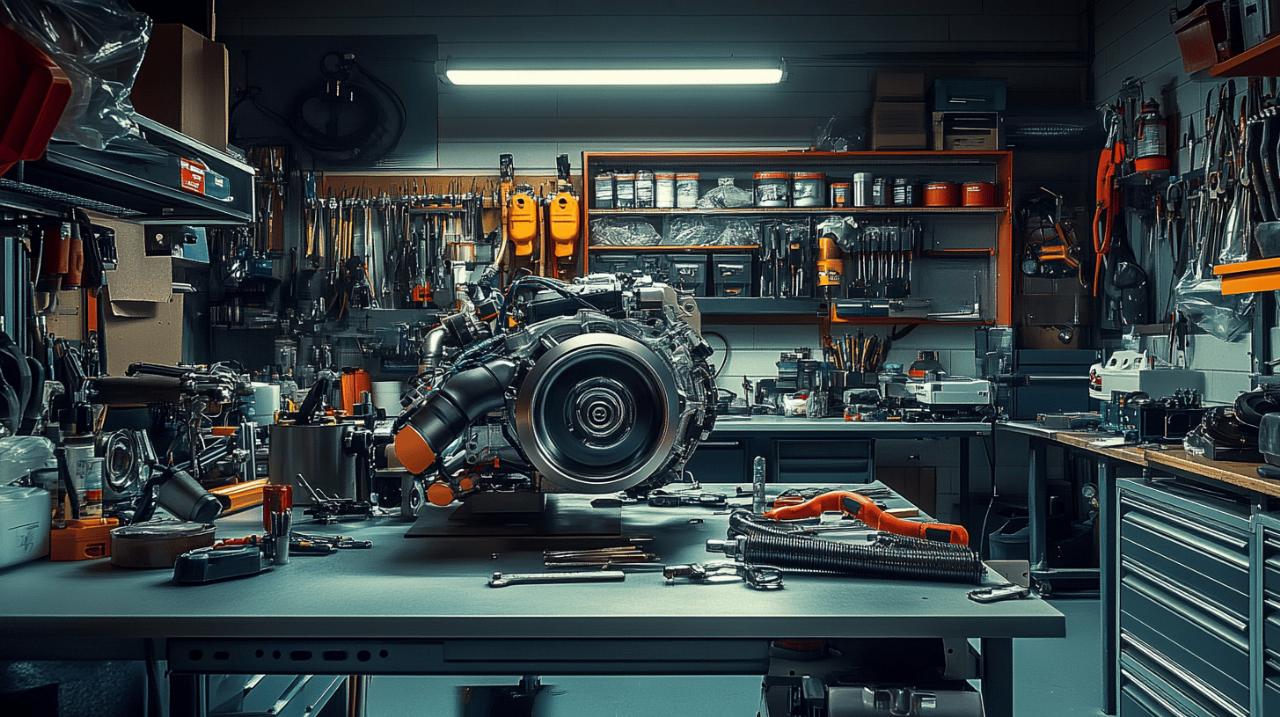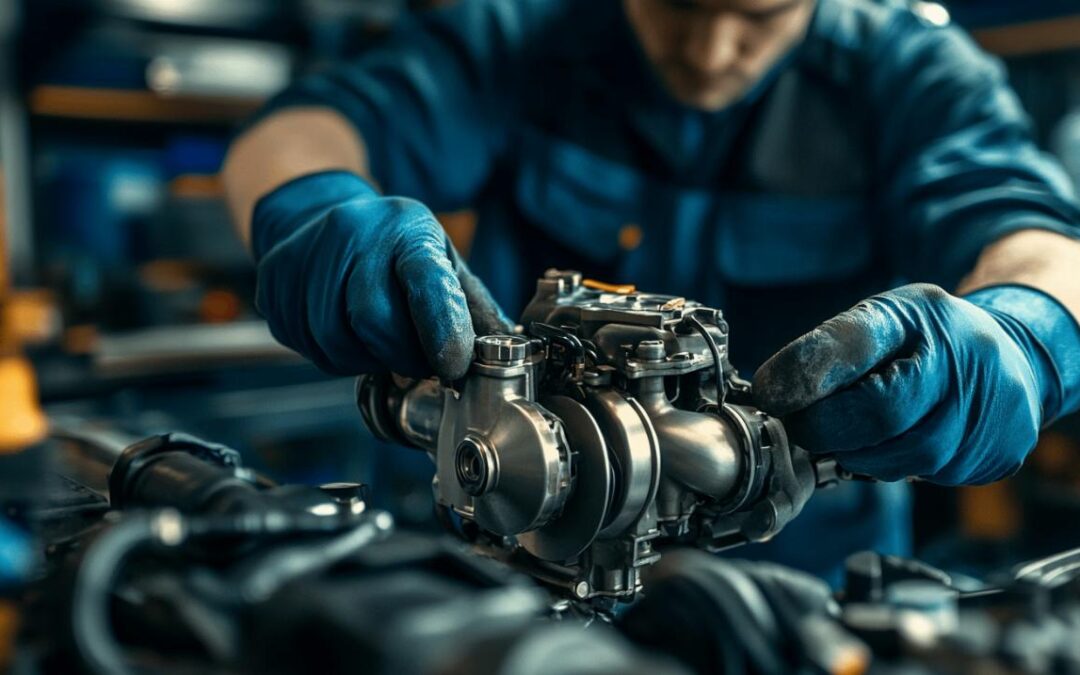Turbocharged engines, like those found in the Peugeot 307, offer an exciting performance boost but require specific maintenance to ensure optimal function and longevity. Whether you're looking to maintain your current setup or enhance your turbocharger's performance, these expert tips will help you get the most from your turbocharged Peugeot. For car enthusiasts who frequently visit https://www.auto-h-aus-europa.de/ seeking automotive guidance, these recommendations will prove especially valuable for preserving and improving your 307's turbo system.
Oil maintenance strategies
The lifeblood of your turbocharger is quality oil that lubricates its high-speed components. Neglecting oil maintenance is perhaps the quickest way to turbocharger failure in your Peugeot 307.
Selecting the right oil grade
Your Peugeot 307 turbo demands specific oil formulations designed to withstand the extreme heat and pressure within the turbocharger unit. Always use fully synthetic oil that meets Peugeot's specifications, typically 5W-40 or 5W-30 depending on your engine variant. These grades provide excellent protection during cold starts while maintaining viscosity at the high temperatures generated by turbocharged engines. Using inferior oils or incorrect grades can lead to carbon buildup and premature bearing wear.
Establishing an effective oil change schedule
Turbocharged engines like those in the Peugeot 307 require more frequent oil changes than naturally aspirated engines. While the standard recommendation might be every 10,000 miles, reducing this to 5,000-7,000 miles can significantly extend turbocharger life. The oil filter should be replaced with every oil change, as it traps harmful particles that would otherwise circulate through your turbo bearings. Consider this investment in regular oil maintenance as inexpensive insurance against costly turbocharger replacement.
Proper engine operation techniques
How you drive and manage your engine has a direct impact on turbocharger longevity and performance. Simple operational habits can make a substantial difference.
Morning warm-up procedures
Turbocharged engines benefit from gentle warm-up periods, especially during colder months. When starting your Peugeot 307, allow the engine to idle for about 30-60 seconds before driving away. This gives the oil time to circulate and reach operating temperature within the turbocharger bearings. During the first few minutes of driving, keep engine revs moderate until normal operating temperature is reached. This practice reduces wear on the turbocharger components and prevents oil coking from cold startups.
Post-driving cool-down methods
The moments after driving are crucial for turbocharger health. When you reach your destination after spirited driving, let your engine idle for approximately 30 seconds before switching off. This cooling period allows the turbocharger to slow down gradually while oil continues to circulate, preventing oil from cooking in the hot bearings. Sudden shutdowns trap heat in the turbo housing and can cause premature bearing failure over time.
Monitoring system integrity
Maintaining proper pressure within your turbo system ensures optimal performance and prevents damage to components. Regular inspections can identify issues before they become serious problems.
Identifying and fixing boost leaks
Boost leaks are common culprits behind reduced turbocharger performance in the Peugeot 307. These leaks occur when pressurized air escapes from the intake system after the turbo. Signs include reduced power, inconsistent acceleration, and unusual whistling noises. To check for leaks, inspect all connections and hoses between the turbocharger and intake manifold. A professional boost leak test using smoke or pressure testing equipment can pinpoint even minor leaks that visual inspection might miss.
Checking hose connections and seals
The various hoses and seals in your turbo system are subjected to extreme pressure and temperature changes, causing them to deteriorate over time. Examine all rubber hoses for cracks, swelling, or hardening, paying particular attention to those connecting the turbocharger, intercooler, and intake. Ensure all clamps are tight and appropriately positioned. Oil leaks around the turbo housing indicate failing seals that require immediate attention to prevent catastrophic turbocharger failure.
Performance monitoring tools
Modern technology offers several ways to keep tabs on your turbocharger's performance, helping you spot potential issues early.
Understanding boost gauge readings
A boost gauge is an invaluable tool for any turbo Peugeot 307 owner. This simple instrument displays the amount of pressure your turbocharger is generating. Normal readings for stock 307 turbos typically range between 0.5 and 0.8 bar under full load, depending on the specific engine variant. Consistently low readings might indicate boost leaks or turbocharger problems, while abnormally high readings could suggest overboost conditions that might damage your engine. Learning to interpret these readings helps you understand your turbo's health and performance profile.
Signs of turbocharger underperformance
Recognizing early warning signs can save you from expensive repairs. Watch for symptoms like excessive exhaust smoke, which might appear blue if oil is leaking into the combustion chambers, or black if the fuel mixture is too rich. Unusual noises such as whistling or whining from the turbo area often indicate bearing wear or compressor wheel damage. Sluggish acceleration or a noticeable lag in power delivery suggests the turbo might not be spooling properly. Address these symptoms promptly to prevent complete turbocharger failure.
Intercooler maintenance
The intercooler plays a crucial role in cooling compressed air from the turbocharger before it enters your engine, directly affecting performance and reliability.
Cleaning techniques for maximum efficiency
Over time, your Peugeot 307's intercooler accumulates oil film, dust, and debris that reduce its cooling efficiency. Every 20,000 miles, consider cleaning the intercooler to restore optimal performance. For external cleaning, carefully remove the intercooler and use specialized cleaner designed for aluminum heat exchangers. Spray the cleaner through the fins from both directions, then rinse thoroughly with water. For internal cleaning, professional flushing services can remove oil buildup that reduces heat transfer efficiency.
Inspecting for Damage and Blockages
Regular visual inspections can identify potential intercooler issues before they affect performance. Look for damaged fins, dents, or physical obstructions that might restrict airflow. Check the mounting points for cracks or loose fittings. Ensure that nothing is blocking the front of the intercooler, as reduced airflow will compromise cooling efficiency. A properly functioning intercooler is essential for consistent turbo performance and engine protection.
Fuel quality considerations
The fuel you choose has a significant impact on your turbocharger's performance and longevity, especially in performance-oriented vehicles like the Peugeot 307.
Impact of Fuel Types on Turbo Performance
Higher octane fuels provide better resistance to detonation, which is particularly important in turbocharged engines that operate under higher compression. For the Peugeot 307 turbo, using premium fuel with 98 RON rather than standard 95 RON can improve performance and reduce the risk of engine knock. Quality fuel also contains fewer impurities that could contribute to carbon deposits in the turbocharger and engine. Though more expensive, premium fuel often delivers better fuel economy and smoother power delivery in turbocharged applications.
Preventing fuel-related turbo damage
Poor quality fuel can lead to detonation or pre-ignition, placing excessive stress on your turbocharger and engine components. Consistently using fuel from reputable stations reduces the risk of contaminants that could clog injectors and affect air-fuel ratios. Consider adding a quality fuel system cleaner every few thousand miles to keep injectors clean and functioning optimally. This helps maintain the precise fuel delivery needed for efficient turbocharger operation and prevents carbon buildup that can affect turbo performance.
Professional servicing benefits
While many maintenance tasks can be performed by enthusiastic owners, professional servicing remains essential for comprehensive turbocharger care.
Key maintenance milestones for your 307
Your Peugeot 307 turbo benefits from milestone-based professional inspections beyond regular maintenance. At 40,000 miles, have the turbo system comprehensively checked, including pressure testing and inspection of the wastegate actuator. By 60,000 miles, consider a professional assessment of the turbocharger bearings and shaft play. At 80,000 miles, a complete turbo system overhaul might be prudent, including cleaning or replacing the variable geometry components if your model has them. These preventative services often cost far less than replacing a failed turbocharger.
Finding specialist peugeot turbo mechanics
Not all mechanics have the specialized knowledge required for turbocharger maintenance. Seek technicians with specific experience working on Peugeot turbocharged engines, preferably with dealer training or certification. Specialist garages often have the diagnostic equipment needed to accurately assess turbocharger performance and identify issues that general workshops might miss. Ask about their experience with the HDi engines specifically, as these have unique characteristics that require specialized knowledge. The right specialist can help maximize your turbocharger's performance and lifespan through expert maintenance and tuning.

